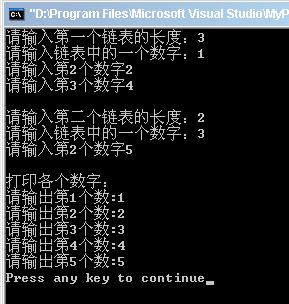C++ - "shared_ptr"的使用方法 及 代码
"shared_ptr"的使用方法 及 代码智能指针(smart pointer)是C++11的新特性. 指针在无人使用时, 自动释放动态内存.
通过"use_count"计数, 并判断是否无人使用, 从而释放内存.
在函数复制(copy)过程中, 默认copy方法是引用相同的潜在元素.
如下代码, b1和b2共享元素, 如果范围结束({}), 则b2释放, b1则没有元素, 为了保持b1中的元素, 而使用动态内存.
由于VS2012很多C++11特性无法支持, 所以在Eclipse CDT上进行测试(GCC4.8.1).
代码(Eclipse CDT)如下, 注意b1的元素个数, 以及shared_pointer的使用数(use_count):
/*
* CppPrimer.cpp
*
* Created on: 2013.11.2
* Author: C.L.Wang
*/
/*eclipse cdt*/
#include <iostream>
#include <vector>
#include <string>
#include <initializer_list>
#include <memory>
#include <stdexcept>
using namespace std;
class StrBlob {
public:
typedef std::vector<std::string>::size_type size_type;
StrBlob();
StrBlob(std::initializer_list<std::string> il);
size_type size() const{ return data->size(); }
bool empty() const { return data->empty(); }
void push_back(const std::string& t) { data->push_back(t); }
void pop_back();
std::string& front() ;
std::string& back() ;
std::shared_ptr<std::vector<std::string> > data; //test
private:
//std::shared_ptr<std::vector<std::string> > data;
void check(size_type i, const std::string &msg) const;
};
StrBlob::StrBlob():data(std::make_shared<std::vector<std::string>>()) {}
StrBlob::StrBlob(std::initializer_list<std::string> il):
data(std::make_shared< std::vector<std::string> >(il)) {}
void StrBlob::check(size_type i, const std::string &msg) const {
if(i >= data->size())
throw out_of_range(msg);
}
std::string& StrBlob::front () {
check(0, "front on empty StrBlob");
return data->front();
}
std::string& StrBlob::back () {
check(0, "back on empty StrBlob");
return data->back();
}
void StrBlob::pop_back () {
check(0, "pop_back on empty StrBlob");
data->pop_back();
}
int main (void) {
StrBlob b1;
//{}释放b2
{
StrBlob b2 = {"a", "an", "the"};
b1 = b2;
b2.push_back("about");
}
std::cout << "b1 size = " << b1.size() << std::endl;
std::cout << "b1 data use count = " << b1.data.use_count() << std::endl;
//b2已经被释放了
//std::cout << "b2 size = " << b2.size() << std::endl;
return 0;
}
输出:
b1 size = 4
b1 data use count = 2

补充:软件开发 , C++ ,




